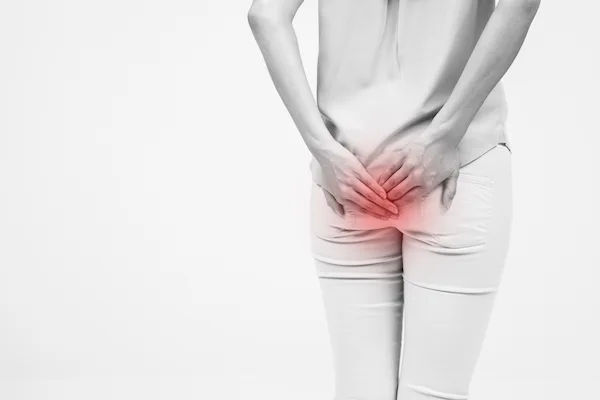How Long Should You Take Stool Softener After Hysterectomy?
Wondering how long to use stool softeners after a hysterectomy? Get expert guidance on the typical duration, signs it's time to stop, and tips for managing constipation during your recovery period.

Written by Dr.Sonia Bhatt
Last updated on 13th Jan, 2026

Introduction
Undergoing a hysterectomy—a surgery to remove the uterus—can bring relief from various health issues, but recovery requires careful attention, especially when it comes to bowel movements. After surgery, constipation is a common concern due to anesthesia, pain medications, and reduced physical activity. Stool softeners are often recommended to ease discomfort, but many patients wonder: how long should you take a stool softener after a hysterectomy?
In this article, we’ll discuss why stool softeners are necessary, how long they should be used, and tips for a smoother recovery.
Why Are Stool Softeners Needed After Hysterectomy?
After a hysterectomy, several factors contribute to constipation:
Pain Medications (Opioids): These slow down bowel movements.
Anesthesia Effects: Temporarily reduces gut activity.
Reduced Mobility: Limited movement post surgery affects digestion.
Dehydration & Diet Changes: Poor fluid intake or low fiber foods can worsen constipation.
Stool softeners (like docusate sodium) help by drawing water into the stool, making it softer and easier to pass without straining. Straining can be harmful after surgery, as it may increase abdominal pressure and slow healing.
How Long Should You Take a Stool Softener?
Most doctors recommend taking a stool softener for 1 to 2 weeks after surgery, but this can vary based on:
Type of Hysterectomy:
Laparoscopic/Vaginal Hysterectomy: Recovery is faster (1-2 weeks of stool softeners).
Abdominal Hysterectomy: May require longer use (2-4 weeks).
Pain Medication Use: If you’re still taking opioids, continue stool softeners until you stop.
Bowel Habits: If constipation persists, your doctor may advise extending use.
Always follow your surgeon’s specific advice, as individual recovery varies.
Consult Top Gynaecologists
Tips for Managing Bowel Movements After Hysterectomy
To support digestion and reduce reliance on stool softeners:
1. Stay Hydrated
Drink 8–10 glasses of water daily to keep stools soft.
Warm liquids (herbal tea, warm water with lemon) can stimulate digestion.
2. Eat FiberRich Foods
Include whole grains, fruits (prunes, apples), vegetables, and legumes.
Avoid processed foods that worsen constipation.
3. Gentle Movement
Short walks (as approved by your doctor) help stimulate bowel movements.
Avoid heavy lifting or strenuous activity.
4. Probiotics & Natural Laxatives
Yogurt, kefir, or probiotic supplements support gut health.
Prune juice or flaxseeds can act as natural laxatives.
5. Avoid Straining
Use a small footstool to elevate your feet while sitting on the toilet (helps alignment).
If needed, ask your doctor about mild laxatives (like Miralax) if stool softeners aren’t enough.
When to Stop Stool Softeners?
You can gradually stop stool softeners when:
You’re no longer taking opioid pain relievers.
Your bowel movements are regular and pain free.
You’re eating a balanced diet and staying active.
If constipation returns, consult your doctor before restarting stool softeners.
When to Seek Medical Help?
Contact your doctor if you experience:
No bowel movement for more than 3 days.
Severe abdominal pain or bloating.
Blood in stool.
Persistent constipation despite using stool softeners.
Final Thoughts
Stool softeners are a helpful tool in post hysterectomy recovery, typically needed for 1–4 weeks depending on your healing process. Combining them with hydration, fiber, and light activity can make recovery smoother.
If you’re unsure about your recovery or need personalized advice, Apollo 24|7 offers expert consultations to guide you through post surgery care.
Consult Top Gynaecologists
Consult Top Gynaecologists

Dr. Mona Yadav
Obstetrician and Gynaecologist
19 Years • MBBS, MD (Obstetrics & Gynaecology)
Dombivli
Nulife multispeciality, Dombivli

Dr. Parul Sharma
Obstetrician and Gynaecologist
8 Years • MBBS, MS (Obstetrics & Gynaecology)
New Delhi
THE DOCTORS NESST, New Delhi

Dr. Debajyoti Goswami
Obstetrician and Gynaecologist
10 Years • MBBS,D.G.O(DNB),Adv. Infertility Tech.(AIIMS),Fellowship in Diabetes(U.K),Comprehensive Abortion Care(Govt. Of W.B), Certificate in Clinical Embryology(AIIMS, BHUBANESWAR)
Bankura
D.G Clinic, Bankura
(25+ Patients)

Dr. Asha Rani Singh
Obstetrician and Gynaecologist
24 Years • MBBS DGO
Delhi
Dr Asha Rani Singh Clinic, Delhi

Dr. Shyamala Devi
Obstetrician and Gynaecologist
38 Years • MBBS, MS Obstetrics & Gynaecology
Vijayawada
Sri Shivshakti Nilayam, Vijayawada
Consult Top Gynaecologists

Dr. Mona Yadav
Obstetrician and Gynaecologist
19 Years • MBBS, MD (Obstetrics & Gynaecology)
Dombivli
Nulife multispeciality, Dombivli

Dr. Parul Sharma
Obstetrician and Gynaecologist
8 Years • MBBS, MS (Obstetrics & Gynaecology)
New Delhi
THE DOCTORS NESST, New Delhi

Dr. Debajyoti Goswami
Obstetrician and Gynaecologist
10 Years • MBBS,D.G.O(DNB),Adv. Infertility Tech.(AIIMS),Fellowship in Diabetes(U.K),Comprehensive Abortion Care(Govt. Of W.B), Certificate in Clinical Embryology(AIIMS, BHUBANESWAR)
Bankura
D.G Clinic, Bankura
(25+ Patients)

Dr. Asha Rani Singh
Obstetrician and Gynaecologist
24 Years • MBBS DGO
Delhi
Dr Asha Rani Singh Clinic, Delhi

Dr. Shyamala Devi
Obstetrician and Gynaecologist
38 Years • MBBS, MS Obstetrics & Gynaecology
Vijayawada
Sri Shivshakti Nilayam, Vijayawada




